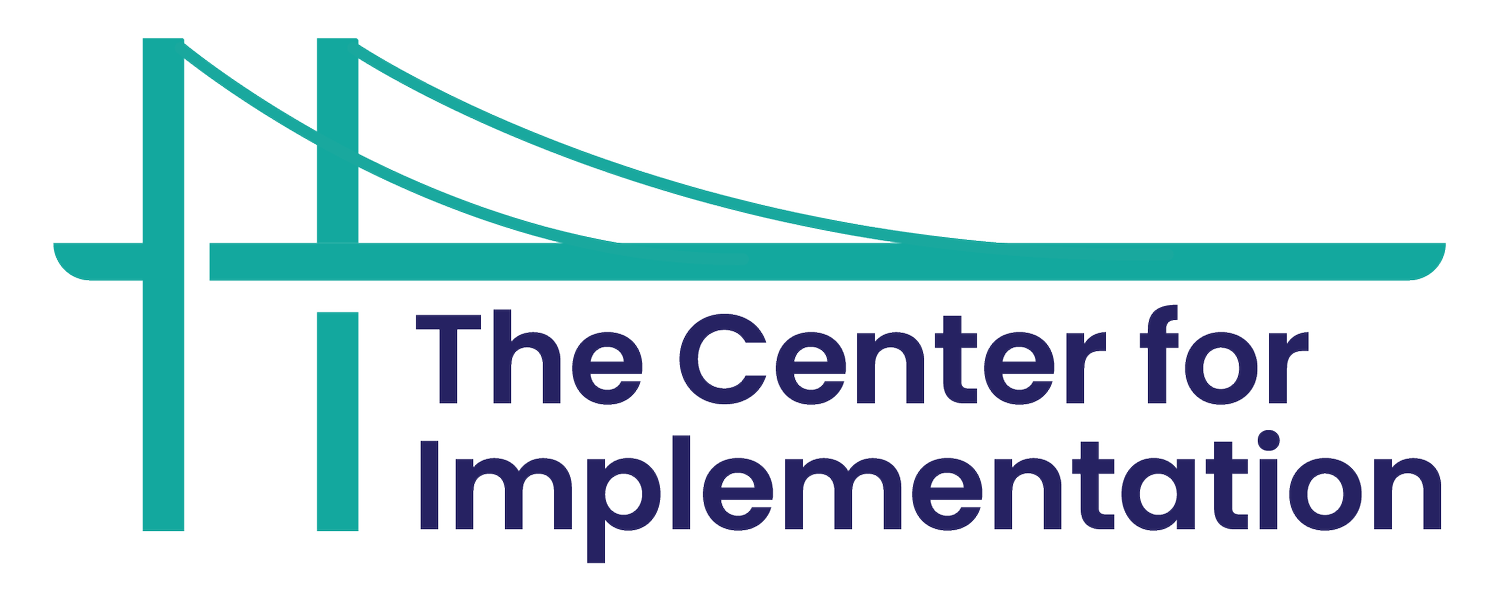Navigating Challenging Times With Values-Based Implementation
By Dr. Sobia Khan, Director of Implementation, and Dr. Julia E. Moore, Executive Director
4-min read
Through our conversations with colleagues around the world, we are finding that many of us in the implementation space are grappling with uncertainty. Whether it’s navigating shifting policies, funding changes, or the increasing complexity of our work, these challenges can feel overwhelming.
We have questioned how we, at The Center for Implementation, show up and respond. As a Canadian organization that works internationally, how can we support those around us while staying grounded in our values?
As we reflect on what this means for our implementation work, it seems that now, more than ever, values-based implementation is not just an aspiration—it’s essential. When systems feel unpredictable or unjust, values-based implementation helps us stay anchored. It ensures that, even in challenging times, we uphold principles of equity, empathy, and connection in our work.
Values-based implementation as a path to systemic change
We see values-based implementation as not just the technical work of planning and implementing something but approaching implementation with the deeper values and principles that you hold and ensuring that those values and principles are reflected in your implementation processes. Our work is not just about applying frameworks—it’s about shaping systems. Values-based implementation ensures that even small, localized changes align with larger efforts to build equity and justice.
For example, empathy is an important value to consider when supporting implementation. There are ways to show up with genuine empathy throughout implementation, such as treating barriers and facilitators “assessments” as an opportunity to understand others’ experiences, expertise, and perspectives rather than a data collection exercise. Consider as well how you involve individuals in your implementation efforts; treat them the way you would want to be treated if you were in their position or role and try to walk in their shoes.
In contrast, a non-empathetic approach might involve collecting data without a deeper understanding of the individual perspectives and historical experiences of those involved or inviting participation without considering the factors that might influence someone’s willingness to engage.
Courage as a gateway value to implement change
One of the values we've been reflecting on deeply is courage—not just as an individual trait, but as an essential foundation for values-based implementation. In a session with the Greater Good Science Center at the University of Berkeley, we explored how courage acts as a gateway value, enabling us to embody other principles like compassion, vulnerability, and honesty. Courage is what allows us to ask difficult questions, challenge the status quo, and stand up for those who are most affected by implementation decisions. In practice, this might mean advocating for evidence-based strategies despite resistance, addressing power imbalances within implementation settings, or ensuring that diverse voices shape the process—not just as participants, but as decision-makers. Now, more than ever, courage is required to center equity (whether explicitly or implicitly) and to push for justice in the face of uncertainty. Practicing courageous implementation means choosing to lead with integrity, even when systems push back.
Implementation values in times of change: connection, adaptability, and integrity
In this moment of uncertainty and rapid change, there are three additional values we think are essential for navigating implementation challenges while staying true to our principles: connection, adaptability, and integrity.
We have always held connection in very high regard. In fact, we have entire courses on relationships, and connection is one of the fundamental implementation support practitioner functions that we introduced last year. We believe that working collectively and collaboratively to solve problems is the most impactful way forward. Being intentional about our partnerships, bridging gaps between research and practice, and lending one another power in the current context so that we can all strive to better the system together is how we see the ideal present and future of implementation science and practice.
Adaptability allows us to respond to shifting policies, funding cuts, and evolving community needs without losing sight of our long-term goals. It requires a willingness to pivot, experiment, and co-create solutions with those impacted, rather than rigidly adhering to pre-set plans. Our field’s openness to adaptability shifted dramatically during the pandemic and this seems like another moment when those who are able to adapt will find ways to continue to move the work forward.
At the same time, integrity ensures that even as we adjust, we remain anchored in evidence, ethics, and a commitment to equity. It pushes us to resist shortcuts that might compromise quality, to challenge systems that perpetuate harm, and to ensure that implementation is not just effective, but also just. Sometimes we can openly and overtly question and challenge systems. Other times, we might quietly and strategically subvert the system to hold true to our values.
In uncertain times, values-based implementation is more than a principle—it’s a call to action. By remembering and upholding the values that fuel why we do this work, we have the power to shape how we and those around us respond to unpredictable challenges. This isn’t easy, but we’re not alone. By standing together, supporting one another, and leading with courage, we can do more than stay afloat—we can work to build something exponentially better.
This article was featured in our monthly Implementation in Action bulletin! Want to receive our next issue? Subscribe here.
